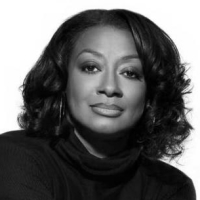Mara Brock Akil has been living with a woman named Mary Jane in her head for years. As a successful TV writer, she longed to bring the story of a single, professional black woman into the homes of millions of Americans.

For almost three decades, the timing didn’t seem to be right. White male executives at the helm of most major television networks showed little appetite for shows about multidimensional black women struggling to achieve their own versions of “happily ever after.”
That era is over; led by ABC’s tantalizing hit Scandal, black female characters are moving away from the neck-rolling, eye-shifting sidekicks of old and seizing center stage for the first time since Diahann Carroll and Teresa Graves starred in Julia and Get Christy Love in the 1960s and ’70s.
ADVERTISEMENT
The latest single black woman to emerge into the spotlight came in the recent Black Entertainment Television’s TV movie Being Mary Jane, which attracted 4 million viewers and has been spun off into a weekly show. It was created by Brock Akil and her husband, Salim Akil, whose previous hits include Girlfriends and The Game.
“For years there were all these new stories about single black women and how high the percentage was for black women to remain unmarried versus that of other women,” said Brock Akil. “But no one dug deeper to tell that whole story that was just below the surface. Who are those women, and how do they operate in a world where there are high expectations of marriage and romance? What are their lives like? I wanted to see that woman, the Mary Jane in my head, on my television screen. I was sure I wasn’t alone.”
Until recently, it seemed she was. Instead of good roles for women of color accented by well-written story lines and scripts, audiences were treated to low-budget cable shows featuring black women in the most demeaning and stereotypical light possible. Basketball Wives, Bad Girls, and The Real Housewives of Atlanta gained huge ratings by offering endless scenes of hair-pulling, water-throwing, and man-stealing showdowns acted out to perfection by a mostly black female cast.
“I simply refused to watch those shows. Just refused,” said Diahann Carroll, a black screen icon. “I didn’t play Julia or the classy Dominque Deveraux on Dynasty for these type shows to become the only roles black women can get on television some 20 to 30 years later.”
While reality shows like Bad Girls became the toast of the television world, the negative portrayals soon provoked a backlash. Last year thousands signed a Change.org petition demanding that VH1 cancel its top-rated show Basketball Wives, a series centered around the ex-wives, baby mamas, and ex-girlfriends of NBA players.
Brock Akil began to see a light at the end of the tunnel when Kerry Washington arrived on a major network in Scandal. The fast-paced ABC drama became a bona fide ratings winner. Like many shows featuring black stars, it was produced by an African-American woman, in this case Shonda Rhimes.
Even before Scandal was broadcast, Brock Akil and her husband, a director, signed a lucrative agreement with Black Entertainment Television. The deal would bring their popular, but canceled, show The Game to the network while allowing the couple to widen the scope of their projects to chronicle the real life of black Americans.
“We decided many years ago what our mission was at BET,” said Debra Lee, president of the network. “We always knew we wanted to present programming that told our stories from every angle. Programming that helped to move us forward in our lives and in our thinking. The Akils have a wonderful track record of telling those type stories.”
Being Mary Jane will be expanded into a weekly drama revolving around an attractive television news anchor who also happens to be a single black woman. Gabrielle Union was cast in the lead role.
“I wanted to show all aspects of what being a single black woman is like,” said Brock Akil. “Regular, everyday emotions that you haven’t seen through a black woman’s point of view on television.”
While Scandal’s plot line heavily revolves around Olivia Pope’s work life, filled with mostly nonblack co-workers, viewers are invited home with Mary Jane. There, we meet her frustrated and jobless older brother, as well as a niece who continues to have child after child without a husband or employment. We are also introduced to her aging parents and watch as they wrestle with the onset of a life-threatening illness. Never before have the issues facing so many black women been explored with such unapologetic honesty or such clear-cut maturity.
Talk-show icon Oprah Winfrey is certainly a believer in black central characters. She has shifted her television channel toward more original programming that features black women as business owners, new mothers, and self-help gurus. Her decision was crucial in turning the once struggling network into the No. 1 destination for African-American women on Saturday nights. Reports suggest the last quarter saw the best Oprah Winfrey Network numbers since the channel was launched in 2011.
“Not so long ago you’d have to catch an old rerun of The Cosby Show to see a black woman with a significant and well-nuanced role on television,” said one well-known black film director. “Now we have options that I couldn’t have imagined just 24 months ago. It’s a glorious moment. Let’s just pray it lasts.”





